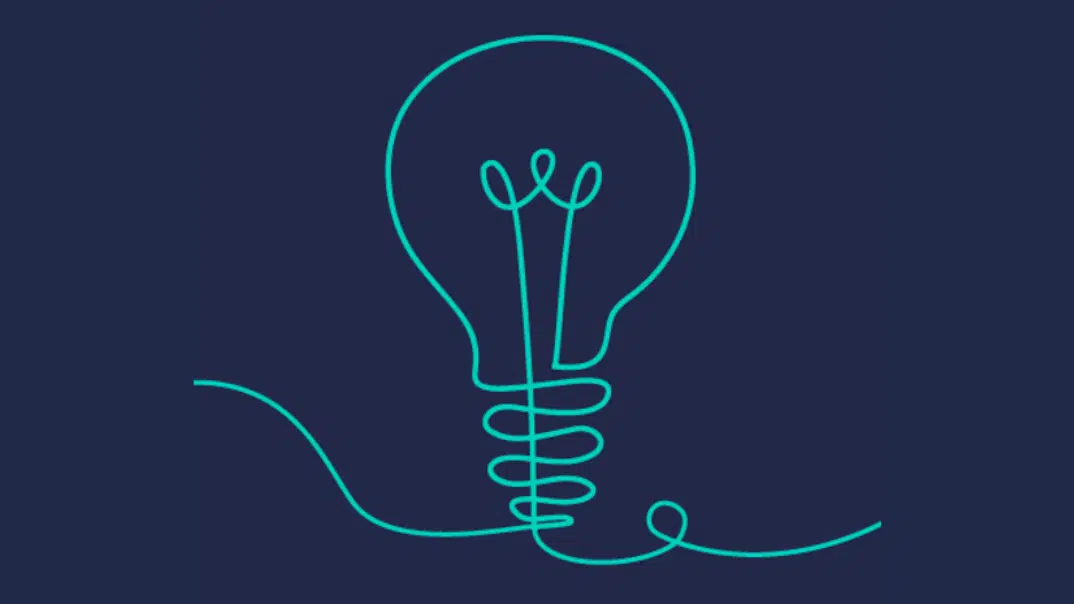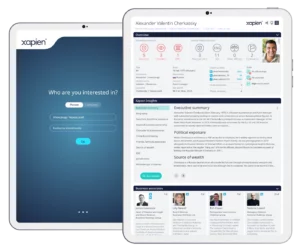
Prospect research:
What makes a fundraising tool a gamechanger for universities?

Automation helps avoid risk and uncover relationship-strengthening information.
“It’s an important leadership competency to make sure you’re thinking about the challenges of funding in the round. I’ve seen many examples – particularly when dealing with philanthropy – of universities perhaps not thinking hard enough about the source of that funding and actually sometimes what the funder wants before grabbing hold of the money.”
– Mark Sudbury, Head of the World 100 reputation network, at a recent Times Higher Education event.
Every year, universities in the United States carry out reputational, ethical, and financial assessments on hundreds of prospects, and the sources of their money. Not only does this research help raise as much funding as possible, but it also ensures donors align with the values of the institution, its students, and its academics – an ever more important consideration.
The quantity of research ‘in the round’ that universities need to conduct while fundraising is growing. There is an exponential amount of information available online. In today’s globalized world, donors can come from anywhere. Information about them may take many forms and be in multiple languages.
Meanwhile, charitable giving to higher education institutions in the United States is on the rise.
Donations exceeded $5.2 billion in the fiscal year 2021, a 6.9% increase over 2020, according to the Voluntary Support of Education. This rise follows a four-fold increase in annual donations to $4 billion between 2013 and 2019. Pennsylvania State University, the University of Oklahoma, and Virginia Tech are among the many institutions reporting record fundraising years. Penn State raised more than $437 million, up from the previous high of $381.2 million, while the University of Oklahoma received $317 million, surpassing last year’s record high of $237 million. Smaller institutions such as the University of Idaho, Wittenberg University, and Fayetteville State University also surpassed prior fundraising records.
This is an exciting time for these universities, which can provide their students with better facilities, widen access, and conduct game-changing research programs, to name but a few benefits of successful fundraising. However, development and alumni relations departments have to do more work than ever before, often with the same resources.
At a time when the challenges surrounding fundraising strategies and donor due diligence are increasingly complex, fundraising departments need the right tools.
Prospects are being bombarded with information and requests for donations all the time, from many sources. If they have to wait too long to hear if their donation can be accepted, or if another institution reaches out with a more personalized request, they may decide to donate elsewhere.
Stay tuned for our next guide on mitigating fundraising risks
Subscribe to our guides.

Universities need the right tools
Text Prospect research and due diligence can be a huge drain on resources. Some institutions outsource it to expensive due diligence research firms, while others hire researchers.
Others rely on fundraising tools to save time, boost efficiency and unlock deeper insights into top prospects.
The majority of tools can be either used for wealth screening or to conduct due diligence.
The best do both. They help universities accelerate the research process by collecting donor data, business affiliations, and real estate holdings, while also uncovering hard-to-find connections and affiliations that would almost certainly be missed by manual research.

The benefits of automation
Automation offers one of the clearest paths to boosting efficiency. It takes the repetitive task of building donor profiles off fundraisers’ plates. Instead, they can focus on high-impact decision making and long-term relationship building.
With the right automation tools, due diligence becomes a vital part of the fundraising process, and not an afterthought. Due diligence and prospect research can be done simultaneously. Rather than causing delays, the two tasks complement each other.
This article will take you through the key features that these tools need to have to be a worthwhile investment. These attributes help you streamline donor due diligence and win more philanthropic gifts. They can provide you with the transparency you need around a donor’s source of funds and the knowledge you need to develop productive relationships.
But first, we’ll recap the benefits of using automated fundraising research tools.
Protect your institution’s reputation
Today, students, staff and alumni are concerned about complicity with authoritarian regimes, polluters, and bad actors. The last few years have seen major fundraising errors by universities across the US.
Protect your institution’s reputation
Today, students, staff and alumni are concerned about complicity with authoritarian regimes, polluters, and bad actors. The last few years have seen major fundraising errors by universities across the US.

The admissions scandal, as well as donations from Epstein and the Sackler family harmed a number of colleges’ reputations. Last year, Stanford University’s announcement that its new climate school would accept donations from fossil fuel companies led to major criticism.
Mitigating all of the risks associated with a donation, or predicting a donor’s future conduct is an unrealistic goal. However, with the right fundraising tools, you can ensure you know every public piece of information about them that could turn them into a risk.
That information can take the form of headline-generating, problematic actions. It could also be more subtle business connections to polluters or companies with human rights abuses buried in their supply chains.
Learn more about prospects and donors
Wealth screening is only one element of prospect research. The details of a prospect’s real estate and stock portfolios, donation history, and other financial details help you determine the donor’s ability to give. However, they do not tell you why they want to give.
Prospect research reveals their motivations and provides insights that deepen conversations. It is essential for developing strong connections with donors, increasing the likelihood of a long term relationship and ongoing gifts.
On the other hand, being aware of negative associations can help avoid reputational harm. On the other hand, lucrative future donor prospects might be revealed.
Work at speed
Game changing insights can take days, or even weeks of research to uncover without the right tools.
This prevents fundraising departments from acting with speed and takes up time that could be spent building relationships. Prospects that are left waiting for long periods of time may donate elsewhere.
In some cases, deep due diligence is overlooked or comes as an afterthought. By that stage, you’ve already spent valuable time engaging with a prospect that could pose a risk to the university.
Automated fundraising tools help you compress weeks of unstimulating research into minutes. You’ll gain vast amounts of time that can be dedicated to proactive relationship building and expanding the donor pool.
What to look for in fundraising tools
Here at Xapien, we have created the gold standard tool for fundraising. Our intelligent, fully automated platform automates online research, using Artificial Intelligence and Natural Language Processing, coupled with vast cloud compute resources. It reads and analyzes data from across the internet to deliver consolidated, insightful reports that include flagged risks, wealth estimates, assets, and associates, in minutes.
It is unique in being an all-in-one prospect research and due diligence solution that can be run on people or companies. It helps universities form fast, traceable decisions with confidence.
Here are the features you’ll find in the best fundraising tools, including Xapien.
They capture information from a range of sources
The amount of available information on prospects is growing exponentially, every day. Non-indexed content is very hard to find using search engines, allowing bad actors to hide misdeeds online.
Without the right tools, fundraising teams must choose between rapid, tick-box due diligence checks that leave them exposed to risks, or days spent conducting research.
Often, fundraisers need to conduct wealth screening research separately to due diligence, elongating the fundraising process.
The breadth of information in a Xapien report
Unlike other background checking services, Xapien isn’t restricted to data sets. It provides automated background research reports on any organization or person using information from the entire indexed internet. It searches PEPs and sanctions databases, news and media articles, corporate records and wider internet data from sites such as LinkedIn, Wikileaks, offshore leaks, and more.
Whereas most other tools on the market only look at one, or a discrete set of data, Xapien takes an incredibly broad approach, reading the entire indexed internet. This enables Xapien to enrich data at incredible scale and accuracy.
They have translation capabilities
As globalization rises, more international prospecting is taking place. The larger prospect pool creates many fresh fundraising opportunities, but also more potential risks. Prospect researchers need to gather and understand international data in order to understand and manage these risks.
Xapien’s translation capabilities
Xapien can read and analyze sources in 133 languages and counting, including transliterating from different scripts such as Arabic and Cyrilic. Background checks can be carried out on prospects from foreign countries just as easily as those based locally.
They streamline the due diligence process, rather than delay it
When you invest time and resources into new tools, you want to be certain that they really will boost efficiency.
How Xapien streamlines due diligence
Dartmouth College has freed up thousands of hours per year with Xapien. It would take analysts eight hours to create a report with the same detail that a Xapien report generates in eight minutes. Previously, around 30% of the potential prospects were being reviewed. Now, well over 75% are considered.
Xapien’s levels of accuracy and depth have only been possible previously using enormous teams of analysts, while its speed is unmatched. In minutes, Xapien can uncover information that analysts carrying out desktop research would take days to find.
This niche, hard-to-find information is summarized and categorized, saving hours of reading time. The articles are all there if you do want to read them, and flagged risks can be expanded if you want to learn more about them.
Our neural risk profiler identifies the risks that are about your subject, rather than someone else with the same name.
For example: There are two ‘Chris Smiths’. One was a defendant in a criminal trial. The other Chris Smith was running a software trial.
Xapien can:
Distinguish between the two Chris Smiths
Tell you that one is involved in a potentially risky ‘trial’, while the other is not
Fundraisers can spend minutes reviewing Xapien’s intuitive reports and forming tailored advice. The reports, and accompanying advice can be shared with relevant stakeholders immediately, with no need to edit or amend them.
They offer insights that help you to make strategic decisions
Uncovering insights that are hard to find, such as detailed, nuanced information about prospects’ career and achievements and personal or philanthropic objectives, is a key reason to use fundraising tools. These insights can either help you hone in on a prospect, and better understand whether they are a suitable donor or not.
The impact of Xapien’s strategic insights
Xapien reveals a wealth of information about the subject, from assets to descriptors to quotes, which is available as soon as the background research report is run. In some cases, this extra information leads to prospects who would have been overlooked being advanced more rapidly through the fundraising process.
Universities used Xapien to build successful, frictionless relationships with non-problematic donors who would previously have been overlooked because of past associations.
A prospect who offered to make a medium-sized donation to Cambridge University was checked on Xapien. The search revealed that they worked for a firm that had in the past invested in fossil fuels oil, but that it had now closed that investment branch.
Without the depth of information and quality of risk analysis provided by Xapien, the prospect might have been immediately rejected. Or, it would have taken hours of manual research, or a year’s worth of ethics committees, to confirm that the donor’s past would not damage the University’s future reputation.
They present networks and connections
Mapping out a donor’s friends, associates, fellow board members and family links can unlock a wealth of new prospects. Equally, they can reveal negative associations that could cause reputational harm. However, without the right tools, this is a time consuming task.

How Xapien uncovers connections
Xapien extracts key events, sentiments and personas and then builds a ‘Knowledge Graph’ that weaves individual pieces of information together. This creates a rich view of the subject and their network.
It doesn’t just provide matches on data such as names and job titles. It can attach facts to people and companies, identifying how they participated in events, where those events took place and who else was involved. Setting everything in context provides multiple new avenues for prospecting.
It also highlights when someone is mentioned in media articles as a friend of a problematic figure, or appears in photographs besides them. Traditional sanctions checks would not flag these risks, but Xapien can identify key networks.
AI insights, straight to your inbox
Stop searching.
Start knowing.
Search engines are great but they are only the starting point. Finding, reading and condensing the full picture is slow, hard, and painstaking work. Xapien can help.
